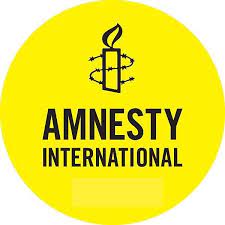From Amnesty International:
A near total communication blackout in Sudan following all network and internet shutdowns in early February poses serious risks to the coordination of emergency assistance and humanitarian services to millions of people caught up in the conflict, Amnesty International said today.
The continued shutdown has limited millions of people’s ability to communicate with their families, seek safe zones from fighting, access life-saving necessities, as well as receive mobile money services.
“The ongoing telecommunications blackout is unacceptable; it puts millions of lives at risk. As millions of Muslim faithful in Sudan prepare to mark the beginning of the Holy month of Ramadhan, Amnesty International demands full restoration of communication services in all of Sudan,” said Sarah Jackson, Amnesty International’s Deputy Regional Director for East and Southern Africa
Without communication, humanitarian operations and emergency services are likely to grind to a complete halt, putting millions of lives at risk.
Sarah Jackson Deputy Regional Director, Amnesty International East and Southern Africa
“This blackout is affecting already vulnerable populations who have had to endure conflict for close to a year now. Without communication, humanitarian operations and emergency services are likely to grind to a complete halt, putting millions of lives at risk. The Sudanese Armed Forces (SAF) and the Rapid Support Forces (RSF) must refrain from shutting down the internet as this is a lifeline for civilians.”
Difficult to communicate with families and monitor violations
Over 20 people interviewed by Amnesty International said they continue to face challenges communicating with their friends and family members since the beginning of the communication blackout in early February. This has created anxiety among Sudanese communities outside the country who are unable to connect and communicate with their loved ones.
The Sudanese Armed Forces (SAF) and the Rapid Support Forces (RSF) must refrain from shutting down the internet as this is a lifeline for civilians.
Sarah Jackson
One Sudanese who is currently based in Kenya said: “I have been unable to communicate with my family members in Khartoum for over two weeks now. I am so worried about their situation. I can only hope that they are well. The internet outage is keeping me worried about my family every day.”
Human rights monitors and defenders who are monitoring the situation in Sudan are also unable to carry out meaningful documentation of rights violations because of the internet shutdown. Over 15 human rights defenders interviewed by Amnesty International in Kenya and Uganda said they have struggled to document ongoing violations in most of Sudan since the beginning of the communication blackout.
Amnesty International researchers have also found it extremely challenging to communicate with people in Sudan, particularly in the cities of Khartoum, Bahri and Omdurman.
Impact on emergency services
The work of frontline humanitarian aid providers has also been severely impacted. One such group of providers are the Emergency Response Rooms (ERR) which were spontaneously created to help coordinate support for Sudanese impacted by the war and provide life-saving services to communities. The virtual rooms consist of Sudanese in the diaspora and volunteers on the ground who process requests from the public via WhatsApp groups and other social media platforms. These humanitarian requests include evacuation needs, identification of safe routes and exits, transportation options, access to food, water, electricity, shelter and other basic needs. Because of the internet shutdown, the ERR’s important work is on the verge of paralysis.
Five ERR coordinators interviewed by Amnesty International said they are finding it difficult to coordinate with their colleagues on the ground to deliver food and other basic needs to the communities.
One representative who is currently outside Sudan said: “Because of the internet shutdown, we are unable to communicate with our volunteers, we are unable to buy food, medicine and deliver these services to those in need. Most of our soup kitchens in the greater Khartoum are cut off and therefore not working. We are also unable to purchase and deliver medicine and other medical equipment to the very limited health facilities that are still operating in the city.”
Impact on mobile money transfers
Due to the internet shutdown, Sudanese in the diaspora and those coordinating emergency responses in the country are unable to send or transfer money to Sudan and within Sudan via mobile banking applications, one of the few remaining means of transferring funds to and within Sudan. In some cases, when money is transferred, recipients are unable to access the funds.
One humanitarian worker said: “E-wallets require internet connectivity to complete transactions. Lack of internet connectivity freezes E-wallet transactions, and no funds means no delivery of most of the ERR work including delivery of food and other necessities.”
E-wallets require internet connectivity to complete transactions. Lack of internet connectivity freezes E-wallet transactions, and no funds means no delivery of most of the ERR work including delivery of food and other necessities
Humanitarian aid worker, Sudan
“Insecurity, looting and bureaucratic impediments have been affecting the delivery of humanitarian assistance in many parts of the country, and the internet shutdown is exacerbating an already dire situation. We call on all parties to the conflict to ensure unrestricted and safe humanitarian access for all who need it.”
“Ahead of the donor pledging conference in Paris on April 15, Amnesty International also calls on the international community to increase and reinforce humanitarian aid to Sudan.” Sarah Jackson Said.
On 4 February, Netblocks reported disruption to multiple internet providers in Sudan, where connectivity levels were already highly diminished due to the ongoing conflict. Again, on 7 February, Netblocks reported a new collapse of internet connectivity in Sudan with leading mobile operator Zain falling largely offline. Internet connectivity remains a challenge across many regions in Sudan despite reports of gradual connectivity in some areas.
Since conflict broke out in April 2023, according to Access Now, both SAF and RSF have shut down the internet to block information flows in areas controlled by the opposing side. The latest shutdown in early February is exacerbating an already catastrophic humanitarian and human rights crisis that has seen over 14,600 people killed, and over nine million internally displaced; the largest internal displacement crisis in the world. The continued weaponization of internet shutdowns by the warring parties in Sudan is a violation of international law.
Media reports and five Sudanese experts interviewed by Amnesty International attributed the total telecommunications blackout that hit Sudan on 7 February to the RSF. The experts said RSF was enforcing a telecommunication blackout in retaliation against SAF ordering a similar blackout late last year in Darfur which is largely controlled by the RSF.









Comments